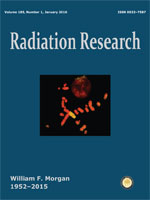There is growing evidence to suggest that radiotherapy can paradoxically promote tumor invasion and metastatic processes, however, the underlying molecular mechanisms remain obscure. In this study, we found that exposure to X rays promoted cell invasion by triggering the epithelial mesenchymal transition (EMT) in two hepatocellular carcinoma (HCC) cell lines, HepG2 and PLC/PRF/5. This was made evident by a reduced expression of E-cadherin and enhanced expressions of N-cadherin, Vimentin and Snail. Moreover, exposure to radiation stimulated the signaling of hydrogen sulfide (H2S), a newly found gas transmitter, by upregulating the expressions of H2S-producing proteins of cysthionine-γ-lyase (CSE), cystathionine-β-synthase (CBS). Inhibition of CSE by siRNA or inhibitor not only increased the radiosensitivity but also strongly suppressed radiation-enhanced invasive properties of HCC cells. Interestingly, we found that H2S/CSE inhibition attenuated radiation-enhanced EMT, and the above effect was an end result of blockage of the radiation-activated pathway of p38 mitogen-activated protein kinase (p38MAPK). Collectively, our findings indicate that radiation could promote HCC cell invasion through EMT mediated by endogenous H2S/CSE signaling via the p38MAPK pathway.
How to translate text using browser tools
31 December 2015
Radiation Exposure Promotes Hepatocarcinoma Cell Invasion through Epithelial Mesenchymal Transition Mediated by H2S/CSE Pathway
Yan Pan,
Cuiping Zhou,
Dexiao Yuan,
Jianghong Zhang,
Chunlin Shao
ACCESS THE FULL ARTICLE

Radiation Research
Vol. 185 • No. 1
January 2016
Vol. 185 • No. 1
January 2016




